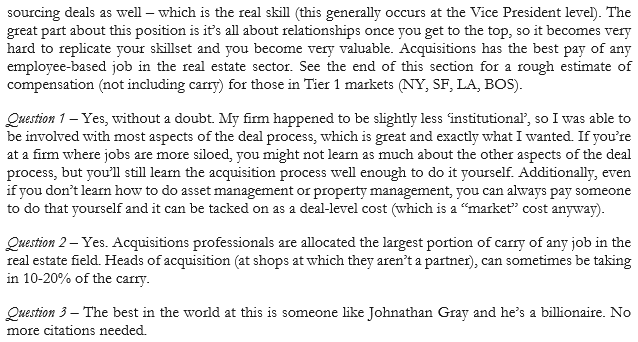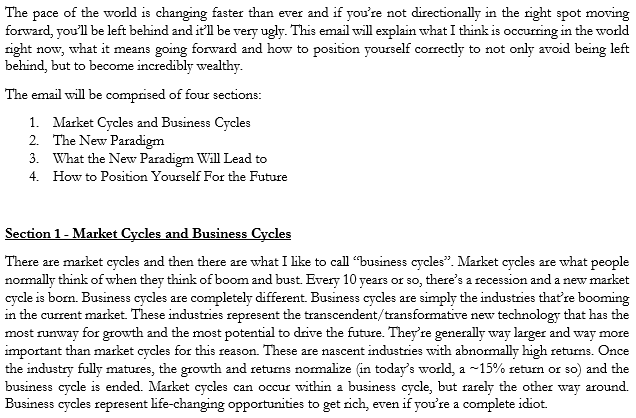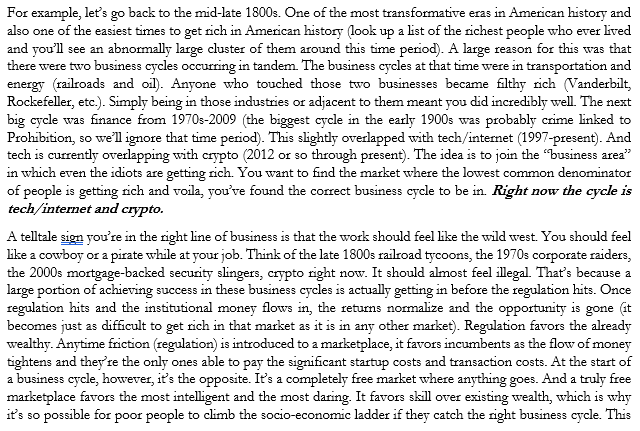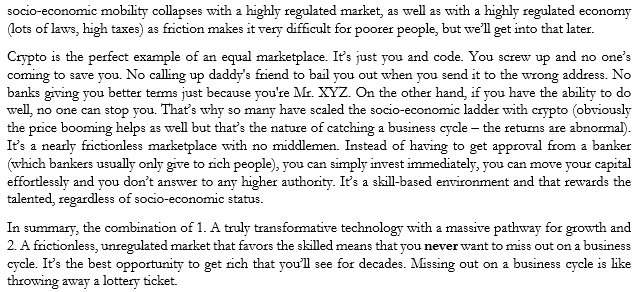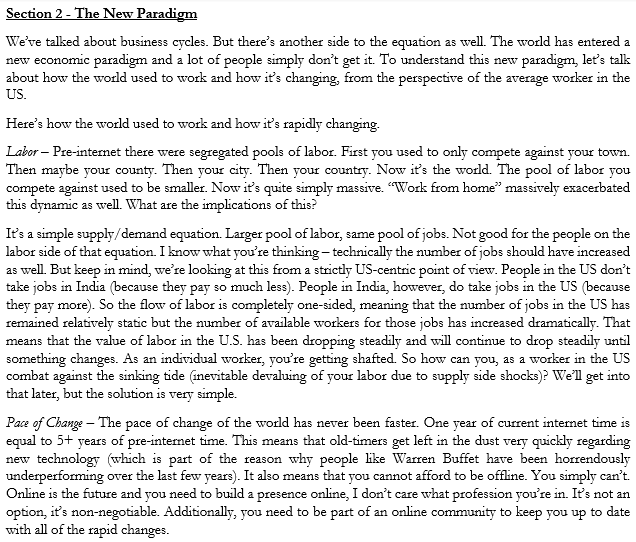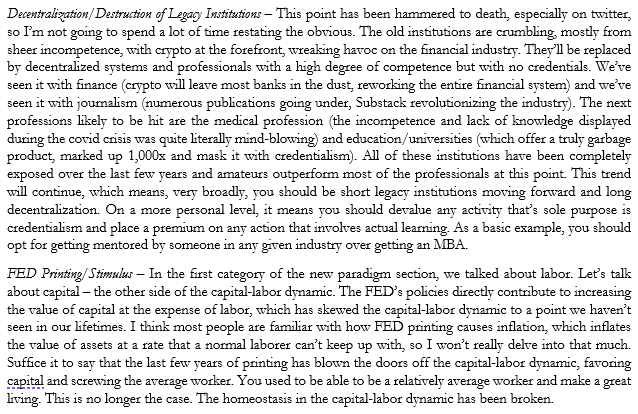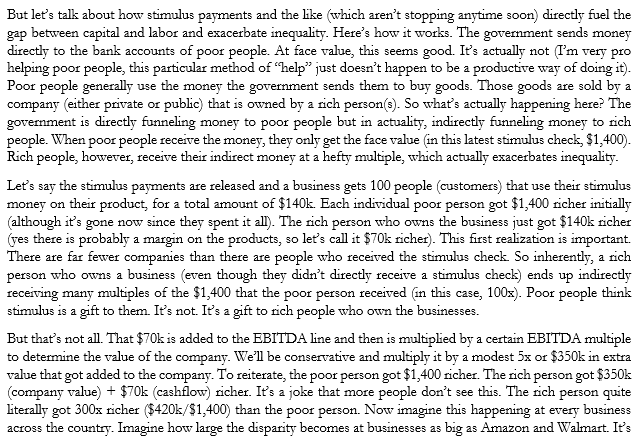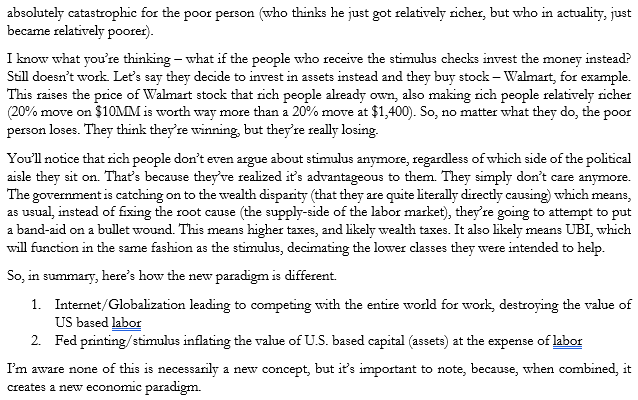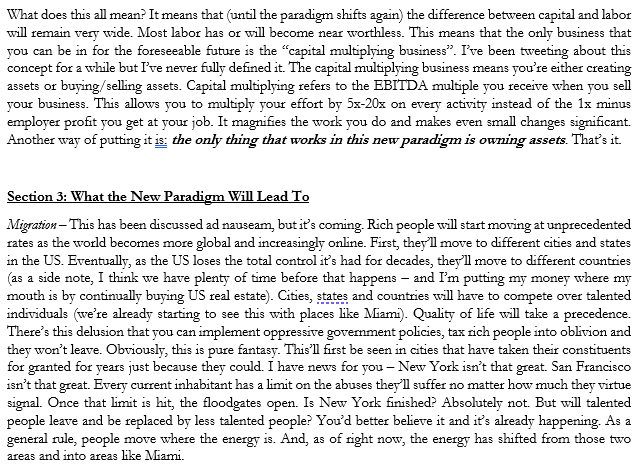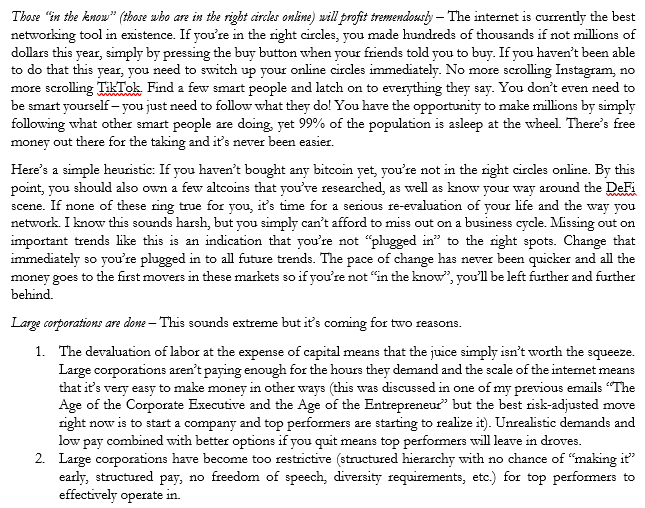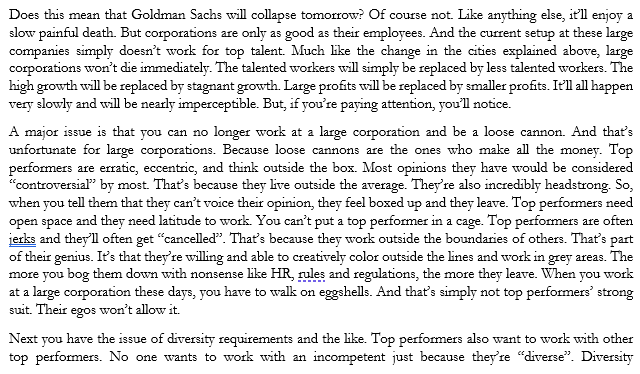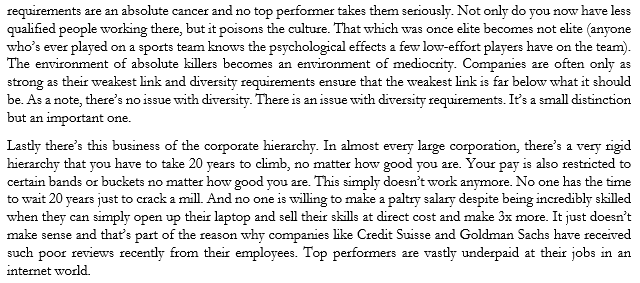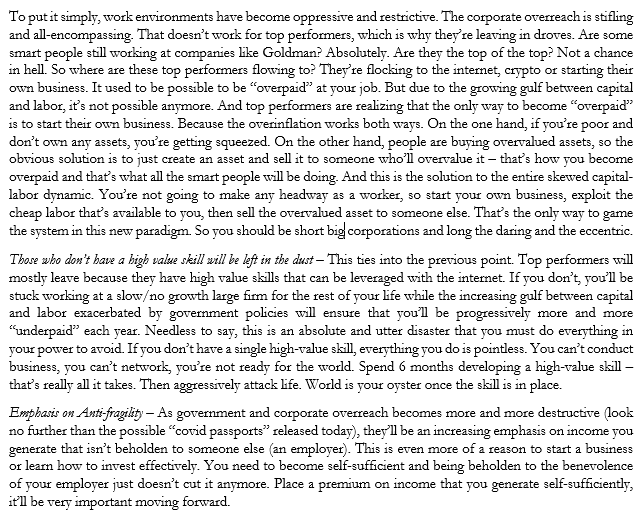
Bringing back an old ex. after today's deal structuring questions
DEAL STRUCTURE - HOW TO ANALYZE A DEAL LIKE THIS:
Deals like this are all about:
1. How quickly you can get your money out
2. How "secure" the cashflow is
We'll go through both in order
DEAL STRUCTURE - HOW TO ANALYZE A DEAL LIKE THIS:
Deals like this are all about:
1. How quickly you can get your money out
2. How "secure" the cashflow is
We'll go through both in order
https://twitter.com/TheRealEstateG6/status/1281367050674417664?s=20
1. How quick you can get your $$ out
A 10% cap rate on $1.3MM is $130k of NOI. Since this is a retail deal, I probably won't leverage above 60%
60% * $1.3MM = $780k. Assuming a 5% interest rate (interest-only debt, your debt payment would be ~$40k, leaving you ~$90k of cashflow
A 10% cap rate on $1.3MM is $130k of NOI. Since this is a retail deal, I probably won't leverage above 60%
60% * $1.3MM = $780k. Assuming a 5% interest rate (interest-only debt, your debt payment would be ~$40k, leaving you ~$90k of cashflow
$90k * 5 years = $450k of cashflow over 5 years
Initial equity in the deal is:
$1.3MM PP + $50k deal costs = $1.35MM
$1.35MM - $780k debt = $570k of initial equity
So over the 5 years of the lease, you would be able to pull out $450k of $570k (~80%) in cashflow alone
Initial equity in the deal is:
$1.3MM PP + $50k deal costs = $1.35MM
$1.35MM - $780k debt = $570k of initial equity
So over the 5 years of the lease, you would be able to pull out $450k of $570k (~80%) in cashflow alone
But that's not all. That's just the cashflow. You still have the value of the building
Assuming 0 appreciation (selling for $1.3MM) you'd still have your $570k worth of equity in the building
So if you sold year 5, you'd net $450k + $570k = ~$1MM
That's 1.8x your initial $570k
Assuming 0 appreciation (selling for $1.3MM) you'd still have your $570k worth of equity in the building
So if you sold year 5, you'd net $450k + $570k = ~$1MM
That's 1.8x your initial $570k
Not bad.
Now what you need to do is stress your returns.
What happens if the building value drops year 5? At what point do you still get all of your money back (a 1x)? How far can lease rates fall for that to happen? How far can lease rates fall for you to still make 1.5x? Etc
Now what you need to do is stress your returns.
What happens if the building value drops year 5? At what point do you still get all of your money back (a 1x)? How far can lease rates fall for that to happen? How far can lease rates fall for you to still make 1.5x? Etc
2. How secure is the cashflow?
If the lease is just a piece of paper, the answer is "not at all"
You want to make sure that you're going to get this cashflow no matter what happens
So how can you defend against this?
- security deposits
- personal guarantees
- escrow reserves
If the lease is just a piece of paper, the answer is "not at all"
You want to make sure that you're going to get this cashflow no matter what happens
So how can you defend against this?
- security deposits
- personal guarantees
- escrow reserves
Security deposits:
SDs are pretty simple. The tenant gives you money (usually a certain amount of months rent, say 5 months) that you keep in a bank account. If the tenant pays their rent and does not destroy their property they get this money back at the end of the lease
SDs are pretty simple. The tenant gives you money (usually a certain amount of months rent, say 5 months) that you keep in a bank account. If the tenant pays their rent and does not destroy their property they get this money back at the end of the lease
If the tenant decides to skip rent, however, you can then seize that money and apply it towards rent
This makes the tenant more cautious of skipping rent (since they'll lose their SD) and it allows you to have 5 months backstop on your expenses if they leave
This makes the tenant more cautious of skipping rent (since they'll lose their SD) and it allows you to have 5 months backstop on your expenses if they leave
The drawback is that this is usually your only recourse when the lease goes south. Once you seize the security deposit, that's all you get
So if the tenant skips out after mth 3 of the lease you only end up with 8 mths of contractual cashflow instead of 5 yrs (60 mths)
Not good
So if the tenant skips out after mth 3 of the lease you only end up with 8 mths of contractual cashflow instead of 5 yrs (60 mths)
Not good
Personal guarantee:
While there are many types of guarantees, typically it means that the tenant signs a doc that obligates him to pay you back and if he doesn't, he is personally liable
While this sounds great (and it is), the drawback is that it's dischargeable in bankruptcy
While there are many types of guarantees, typically it means that the tenant signs a doc that obligates him to pay you back and if he doesn't, he is personally liable
While this sounds great (and it is), the drawback is that it's dischargeable in bankruptcy
Escrowed reserves
Escrowed reserves are typically used by lenders, not by buyers
But in this deal, here's how it would work:
You pay the seller $1.3MM. The seller then leases back the building for a 10% cap rate. You and the seller agree to escrow 3 years of rent payments
Escrowed reserves are typically used by lenders, not by buyers
But in this deal, here's how it would work:
You pay the seller $1.3MM. The seller then leases back the building for a 10% cap rate. You and the seller agree to escrow 3 years of rent payments
Instead of sending the seller the full $1.3MM initially, you'd send him ~$900k. The other ~$400k ($130k of rent payments * 3 years) would be sent directly to an escrow account where it would be drawn down monthly to pay the rent regardless of what happens to the seller
This allows the seller to get his lump sum and for you to be sure that you'll receive that rent you're owed
With the first 3 years in an escrow account, you're nearly guaranteed to get that money
You've essentially locked in your first 3 yrs of income ($270k of cashflow to you)
With the first 3 years in an escrow account, you're nearly guaranteed to get that money
You've essentially locked in your first 3 yrs of income ($270k of cashflow to you)
These are three extremely powerful tools that you should be utilizing in nearly every commerical deal
But you can't utilize all three in one deal
So which ones are most applicable to this deal?
But you can't utilize all three in one deal
So which ones are most applicable to this deal?
In this case, I'm going for a guarantee + escrowed reserves. With those two items, there's virtually no way I won't get my money back
The first 3 years are essentially guaranteed since they'll be paid through escrow. The last 2 yrs will only be lost if the seller goes bankrupt
The first 3 years are essentially guaranteed since they'll be paid through escrow. The last 2 yrs will only be lost if the seller goes bankrupt
This allows me to stop worrying about the cashflow during the lease period. Now all I have to worry about is what to do when the lease ends in 5 years
The good thing is I have 5 years to plan for that
The good thing is I have 5 years to plan for that
This deal is an example of how to box in risk while getting a healthy return
The entire risk of the deal is essentially neutralized aside from the re-lease-up after year 5
Unless rents/prices plummet, you're "guaranteed" a 1.8x return. If rents increase, you make a killing
The entire risk of the deal is essentially neutralized aside from the re-lease-up after year 5
Unless rents/prices plummet, you're "guaranteed" a 1.8x return. If rents increase, you make a killing
• • •
Missing some Tweet in this thread? You can try to
force a refresh






